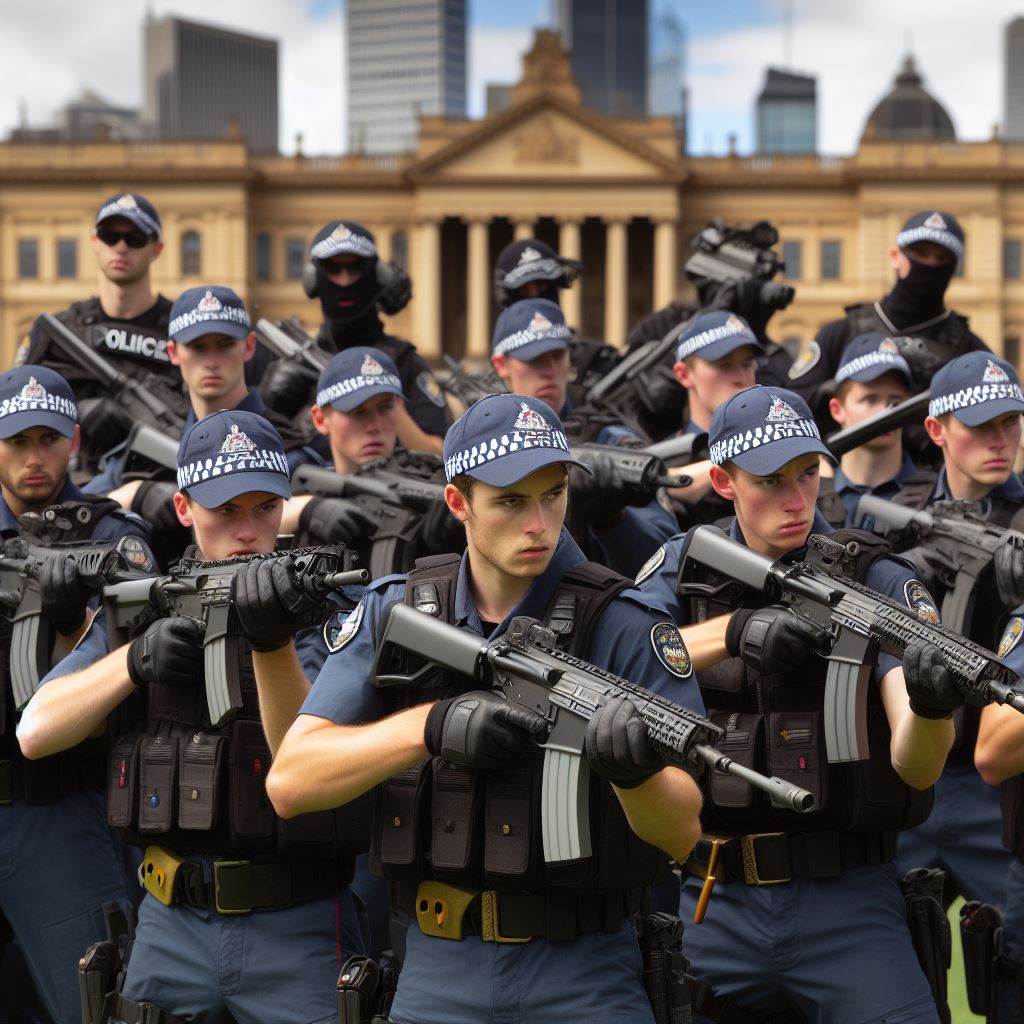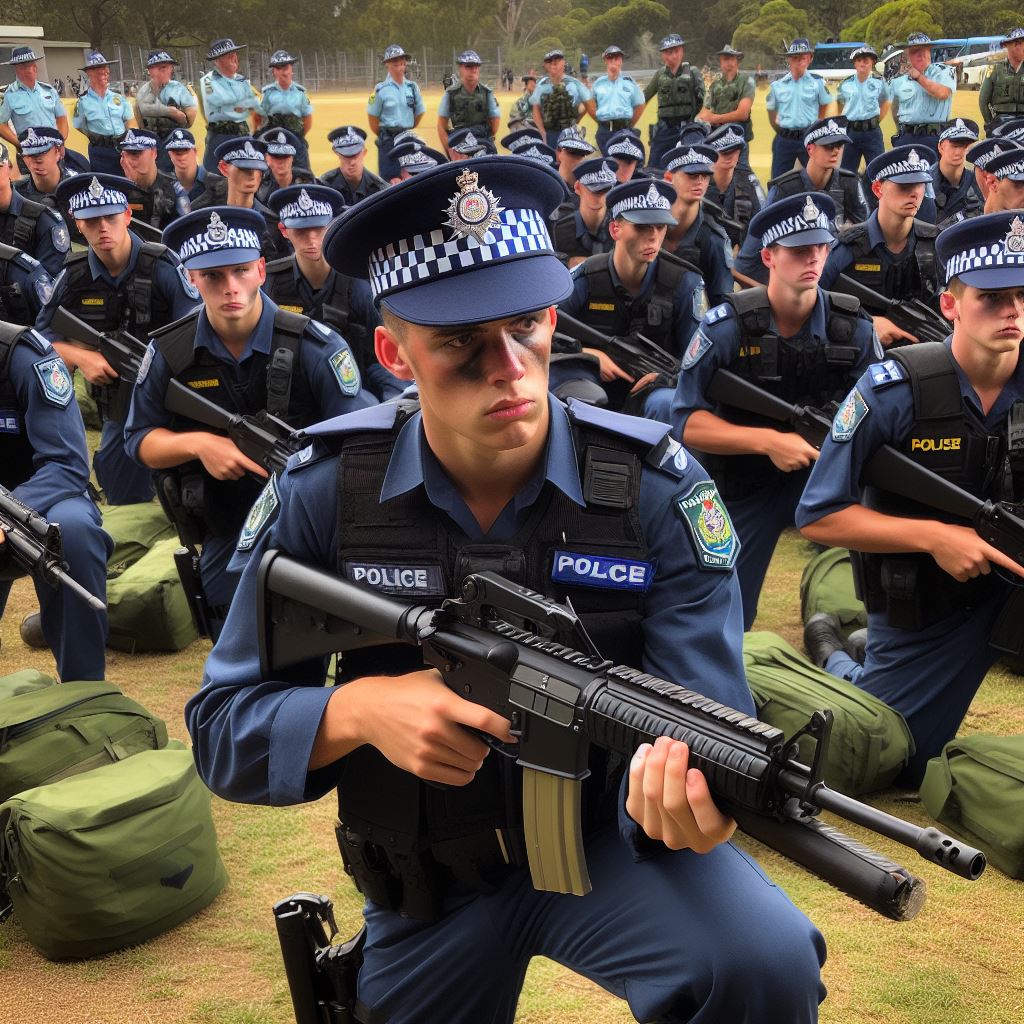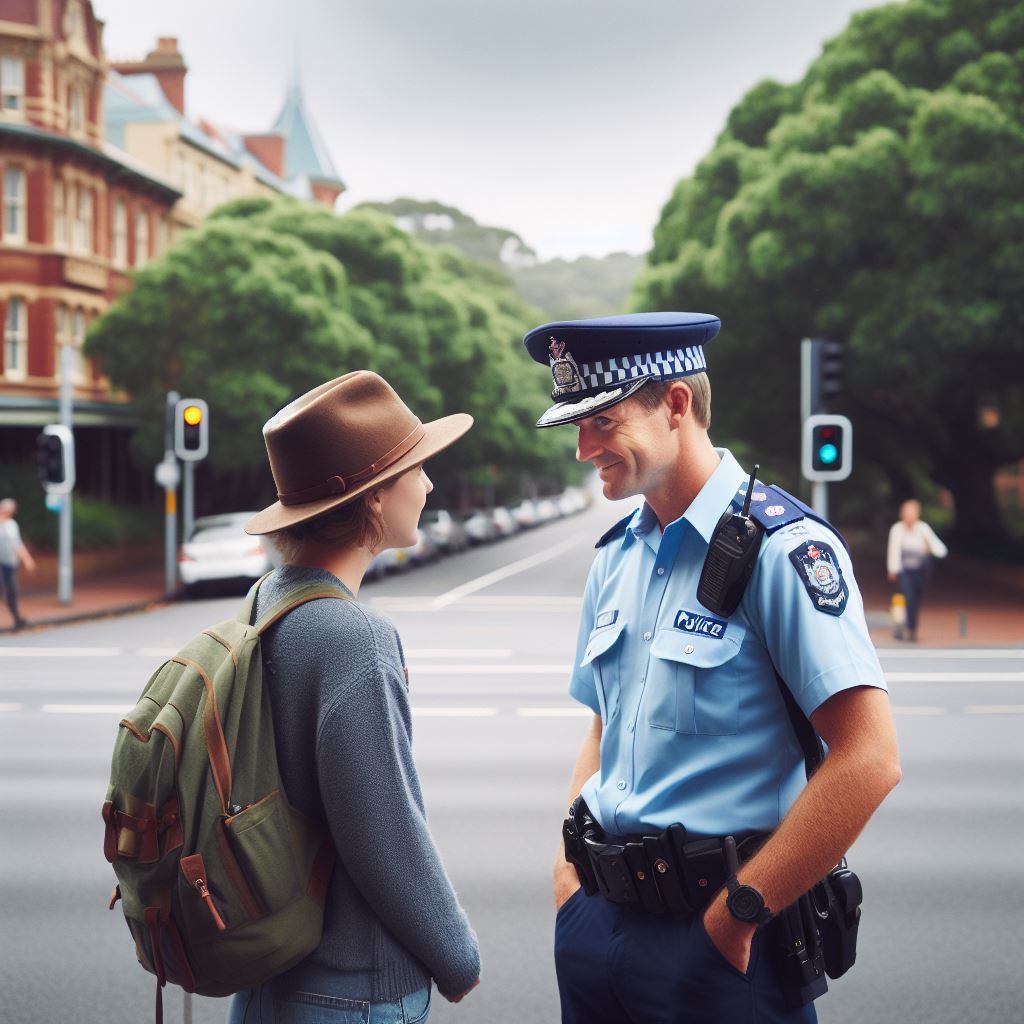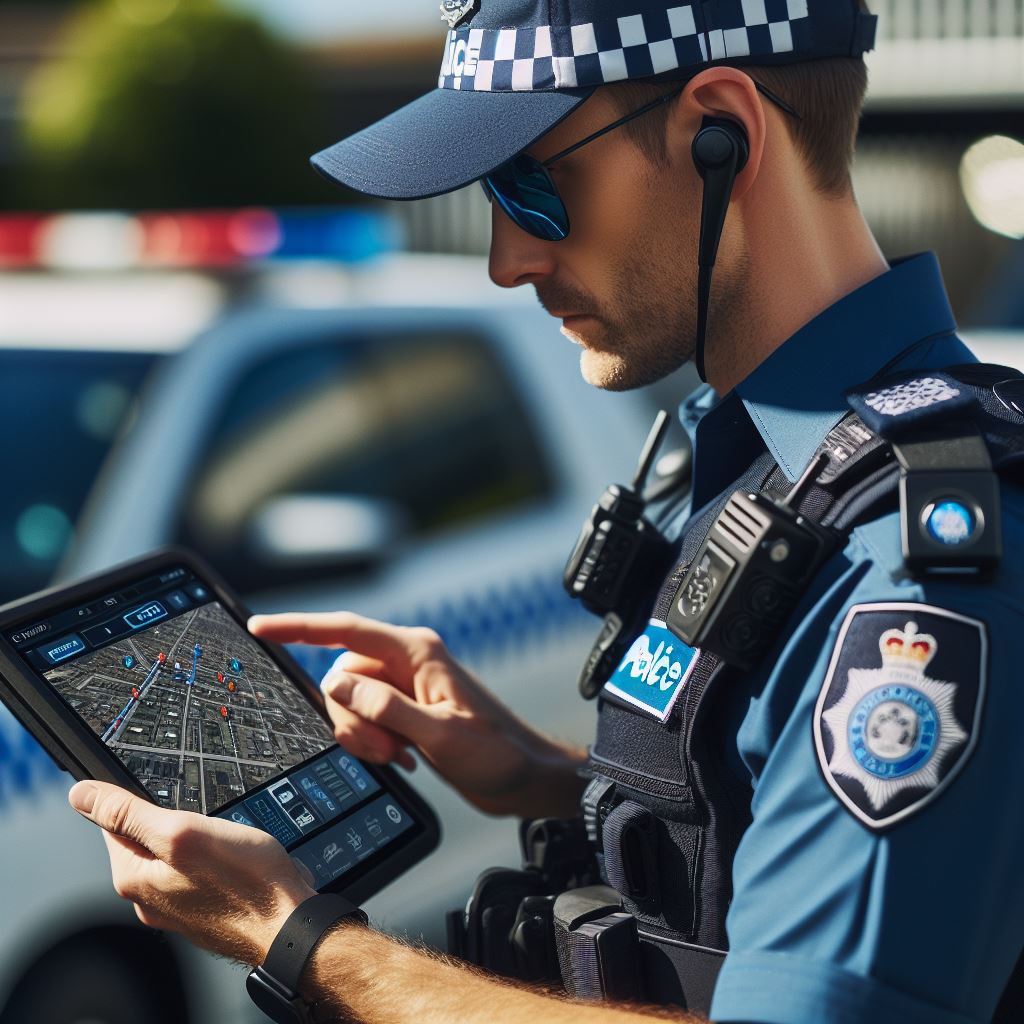Introduction
Police training plays a crucial role in preparing officers for the complexities and challenges of their job.
Understanding what police training involves is vital for both officers and the public they serve.
Police training is a comprehensive program that equips aspiring officers with the necessary skills, knowledge, and ethics to uphold justice and maintain public safety.
It covers a wide range of subjects, including law enforcement techniques, communication skills, conflict resolution, and physical fitness.
One of the key aspects of police training is familiarizing recruits with the legal framework and their role in enforcing the law.
They learn about constitutional rights, search and seizure procedures, and other laws governing their actions.
This knowledge ensures that officers act within their authority and respect citizens’ rights.
Another essential component of police training involves developing effective communication skills.
Officers learn how to communicate professionally and tactfully in various situations, including dealing with victims, witnesses, and suspects.
This training helps to de-escalate tense situations and build trust between law enforcement and the community.
Physical fitness is also a fundamental part of police training.
Officers must meet specific physical requirements to perform their duties effectively.
They undergo rigorous fitness regimens that improve their strength, endurance, and agility, enabling them to respond swiftly and handle physically demanding situations.
Additionally, police training emphasizes the development of critical thinking and problem-solving abilities.
Officers are trained to analyze complex situations, make quick and sound decisions, and adapt to evolving circumstances.
This training prepares them to effectively handle emergencies and provide the necessary support during crises.
Understanding police training is essential for the public to comprehend the demands and responsibilities placed on officers.
It fosters transparency, trust, and collaboration between the police and the communities they serve, promoting a safer and more just society.
Overview of Police Training
Police training plays a pivotal role in shaping individuals for a rewarding career in law enforcement. It encompasses various aspects and stages that equip aspiring officers with the necessary skills and knowledge to serve and protect their communities.
Here is an overview of police training:
Recruitment Process
- Application and background check to ensure suitability for law enforcement.
- Physical fitness test evaluating endurance, strength, and agility.
- Written exam assessing critical thinking, problem-solving, and communication skills.
- Psychological evaluation to determine psychological and emotional stability.
Academy Training
- General law enforcement knowledge covering constitutional rights and legal procedures.
- Physical training focusing on self-defense, firearms proficiency, and emergency response.
- Driving instruction to develop safe and efficient driving skills.
- Ethics and professionalism training to promote integrity and effective community relations.
Field Training
- Supervised on-the-job training to apply theoretical knowledge in practical scenarios.
- Observation and shadowing experienced officers to learn about real-life situations.
- Learning proper arrest techniques, evidence collection, and case management.
- Developing effective communication and de-escalation skills in confrontational situations.
Specialized Training
- Advanced training in specialized units such as SWAT, K-9, narcotics, and forensics.
- Additional coursework on crisis intervention, mental health issues, and cultural diversity.
- Continued education to stay updated on evolving laws, technology, and investigative techniques.
- Training on community policing strategies to build trust and collaboration with residents.
Ongoing Professional Development
- Participating in regular physical fitness tests and firearms training for skill maintenance.
- Attending workshops, seminars, and conferences to enhance knowledge and expertise.
- Receiving leadership and management training for career advancement opportunities.
- Engaging in scenario-based simulations to improve tactical decision-making abilities.
Police training is a comprehensive process that ensures officers possess the necessary skills, knowledge, and professionalism to serve and protect their communities effectively.
From recruitment to ongoing professional development, each stage contributes to the overall expertise of law enforcement personnel.
By investing in rigorous and continuous training, law enforcement agencies can maintain a highly competent force committed to upholding justice and promoting public safety.
Read: How to Become a Police Officer in Australia
Physical Fitness and Health Requirements
Physical fitness is an essential aspect of police training as it is crucial for performing the demanding tasks and responsibilities that come with the job.
Police officers need to possess a high level of physical fitness to ensure they can effectively carry out their duties and protect the community.
Significance of Physical Fitness in Police Training
The significance of physical fitness in police training cannot be overstated. A physically fit officer is better equipped to handle the physical and mental challenges that arise in law enforcement.
They are more capable of responding to emergencies, pursuing suspects, and maintaining public safety.
Physical fitness enhances an officer’s ability to make split-second decisions, react quickly to dangerous situations, and maintain control over their own body and emotions.
It also plays a crucial role in reducing the risk of injury during physically demanding tasks, such as apprehending a suspect or engaging in a foot chase.
Fitness Tests and Requirements
Candidates aspiring to become police officers must meet specific fitness tests and requirements during the recruitment process.
These tests are designed to assess candidates’ physical capabilities and ensure they possess the necessary strength, endurance, and agility to fulfill their duties.
Some common fitness tests include:
- Physical Endurance Test: Candidates are required to complete a timed run, measuring their cardiovascular fitness and stamina.
- Push-Up Test: Candidates must perform a set number of proper push-ups, which measures upper body strength and muscular endurance.
- Sit-Up Test: Candidates must complete a designated number of sit-ups within a specific time frame, which assesses core strength and endurance.
- Vertical Jump Test: Candidates are evaluated on their explosive leg power and lower body strength through a vertical jump measurement.
- Agility Test: Candidates navigate through a series of obstacles, testing their coordination, speed, and flexibility.
In addition to the fitness tests, candidates must meet certain physical requirements, such as height, weight, and body fat percentage, which vary depending on the jurisdiction and agency.
Importance of Maintaining Good Health
Police officers must prioritize maintaining good health throughout their careers to ensure they can perform optimally and avoid burnout or health-related issues that may compromise their ability to serve and protect.
By practicing healthy lifestyle habits, such as regular exercise, proper nutrition, and sufficient sleep, officers can improve their overall physical and mental well-being.
Engaging in regular physical activity not only maintains their fitness levels but also helps manage stress and promotes mental clarity.
Moreover, maintaining good health is essential for longevity within the police force.
Police work can be physically and mentally demanding, requiring officers to be in peak shape to handle the challenges they encounter daily.
By investing in their health, officers can prolong their careers and continue serving their communities effectively.
In fact, physical fitness is of utmost importance in police training as it directly impacts officers’ ability to perform their duties effectively and safeguard the public.
Fitness tests and requirements ensure that candidates possess the necessary physical capabilities, and maintaining good health throughout their careers is crucial for long-term success in law enforcement.
Read: Day in the Life of an Aussie Police Officer
Academic and Theoretical Training
Police training involves a combination of academic and theoretical components that are essential for shaping the knowledge and skills of police officers.
Academic and Theoretical Components
The academic part of police training focuses on providing officers with the necessary knowledge to understand the legal framework and social aspects of their job.
This component aims to equip them with a solid foundation that can guide their decision-making process.
The theoretical aspect of police training deals with the principles and concepts that underpin law enforcement. It encompasses theories of crime, sociology, psychology, and criminology, among others.
This component ensures that officers have a comprehensive understanding of the factors and motivations behind criminal behavior.
Your Personalized Career Strategy
Unlock your potential with tailored career consulting. Get clear, actionable steps designed for your success. Start now!
Get StartedSubjects Covered in Police Training
During their training, police officers cover a wide range of subjects that are crucial for their role in maintaining law and order. Some of the key subjects include:
- Criminal Law: Officers learn about the legal system and the different types of crimes, ranging from minor offenses to serious felonies. Understanding criminal law enables police officers to enforce it effectively.
- Ethics: This subject emphasizes the importance of ethics and moral principles in law enforcement. Officers are trained to make ethical decisions and act with integrity, considering the impact their actions have on individuals and communities.
- Police Procedures: Training covers the standard operating procedures followed by police officers in various situations. Officers learn about arrest techniques, search and seizure protocols, evidence handling, and conflict resolution.
- Community Policing: This subject focuses on building positive relationships between the police and the community. Officers learn about effective communication, problem-solving, and strategies to address community concerns.
- Emergency Response: Training covers procedures for handling emergencies such as natural disasters, terrorist threats, and active shooter incidents. Officers learn how to act swiftly and efficiently to protect lives and property.
Importance of Knowledge in Academic and Theoretical Areas
The knowledge gained in academic and theoretical areas is vital for police officers to perform their duties effectively and ensure public safety. Here’s why:
- Legal Compliance: Understanding criminal law and legal procedures enables officers to enforce laws within the boundaries of the constitution. This knowledge helps ensure that investigations are conducted lawfully and evidence is admissible in court.
- Ethical Conduct: Knowledge of ethics equips officers with a framework to make sound decisions and act ethically in challenging situations. It promotes trust, accountability, and respect between law enforcement and the community.
- Effective Policing: Familiarity with police procedures and techniques equips officers to respond efficiently to various situations. It enables them to maintain control, minimize risks, and protect both themselves and civilians.
- Community Engagement: By understanding the principles of community policing, officers can build positive relationships with community members. This fosters trust, cooperation, and ultimately leads to safer communities.
- Crisis Management: Knowledge of emergency response procedures equips officers to handle crises effectively. Quick and informed decision-making can save lives, mitigate harm, and minimize the impact of emergencies.
Overall, the academic and theoretical components of police training are critical in shaping the capabilities and professionalism of police officers.
By providing them with a solid foundation, these components ensure that officers are equipped to handle the complexities and challenges of their roles, ultimately contributing to a safer society.
Read: Crisis Management in Diplomacy

Firearms Training and Use of Force
The importance of firearms training for police officers cannot be overstated. It is a crucial aspect of their overall training program.
Firstly, firearm safety is of utmost importance in police training. Officers must learn to handle firearms responsibly and minimize the risk of accidents or misfires.
Marksmanship is another key aspect of firearms training. Police officers need to possess excellent shooting skills to effectively neutralize threats while ensuring the safety of innocent bystanders.
Training on the appropriate use of force and de-escalation techniques
Training on the appropriate use of force and de-escalation techniques is also paramount. Officers must know when it is necessary to resort to force and how to minimize its use whenever possible.
The training emphasizes the principle of using the minimum amount of force necessary to control a situation and protect themselves and others.
De-escalation techniques are an essential part of an officer’s toolbox. They involve verbal communication and negotiation skills to defuse tense situations without resorting to physical force.
Officers are trained in conflict resolution strategies that focus on diffusing aggression and calming down individuals who may be agitated or confrontational.
Furthermore, officers are taught the importance of restraint and controlling their emotions in high-stress situations. This ensures that their reactions are measured and appropriate.
Regular and ongoing firearms training is essential to maintain proficiency. Recurrent training sessions help officers stay familiar with their firearms and sharpen their marksmanship skills.
Simulated scenarios that simulate real-life situations are often included in training programs. This allows officers to practice decision-making and judgment in high-pressure circumstances.
Stand Out with a Resume That Gets Results
Your career is worth more than a generic template. Let us craft a resume and cover letter that showcase your unique strengths and help you secure that dream job.
Get HiredSupervisors and trainers closely evaluate officers’ performance during firearms training to identify areas for improvement and provide feedback.
Consequences of the use of force
The use of force can have serious consequences, both for the officer and the individuals involved. Therefore, continuous training is necessary to ensure officers make well-informed decisions.
Overall, the firearms training provided to police officers encompasses firearm safety, marksmanship, appropriate use of force, and de-escalation techniques.
By equipping officers with these skills, the training aims to promote public safety while minimizing harm and ensuring officers are adequately prepared for any situation they may face.
Read: Diplomatic Immunity: The Basics
Practical Skills and Scenario-Based Training
Police officers undergo rigorous training in a variety of practical skills that are essential to their job.
Defensive tactics training is a crucial component, teaching officers how to physically protect themselves and others.
Officers learn techniques such as handcuffing, restraining, and subduing suspects without causing unnecessary harm.
Firearms training is another vital aspect of police training, ensuring officers can safely and accurately use their weapons.
This training covers proper stance, aiming, and firing techniques, as well as rules regarding when and how to use deadly force.
In addition to defensive tactics and firearms training, officers also receive thorough instruction in vehicle operations.
This includes skills such as emergency driving techniques, pursuing suspects safely, and responding to incidents on the road.
Scenario-based training is a key element of police training, aiming to simulate real-life situations officers might encounter.
These scenarios often mimic high-stress and danger-filled scenarios, allowing officers to practice their skills in a controlled environment.
Training exercises help develop critical thinking and decision-making skills
Scenario-based training helps officers develop critical thinking skills, enabling them to assess situations and make informed decisions.
By exposing officers to a range of scenarios, training helps them build experience and confidence in handling challenging situations.
Officers learn how to effectively communicate, gather information, and de-escalate potentially volatile situations.
Through scenario-based training, officers also practice responding to domestic disputes, active shooter scenarios, and hostage situations.
This training emphasizes the importance of teamwork, as officers often collaborate to ensure the best outcome.
Exposure to different scenarios enhances officers’ ability to adapt and think on their feet in various crisis situations.
The training utilizes various props, including simulated weapons, vehicles, and even actors playing the role of suspects or victims.
Video simulations are also commonly used to expose officers to virtual scenarios that effectively test their decision-making skills.
By participating in realistic training exercises, officers gain valuable experience in handling diverse situations they may encounter on duty.
This practical hands-on training significantly enhances the capabilities of future police officers, making them more effective in their roles.
The training not only prepares officers for real-life situations but also helps them understand the impact of their decisions.
It fosters an understanding of the potential consequences that their actions may have on individuals and communities.
In a nutshell, police training involves developing practical skills in defensive tactics, vehicle operations, and firearms handling.
Scenario-based training plays a crucial role in preparing officers for real-life situations and enhancing their critical thinking abilities.
Through these training exercises, officers gain valuable experience and learn to make informed decisions in high-stress environments.
On-the-Job Training and Field Experience
On-the-job training and field experience play a crucial role in the development and success of new police recruits.
This period of supervised field training allows them to put their knowledge into practice and learn from experienced officers in real policing situations.
Importance of On-the-Job Training
- Practical application of theoretical knowledge is vital for police recruits to become competent officers.
- On-the-job training provides hands-on experience, allowing recruits to master essential skills.
- It helps recruits develop problem-solving abilities and adapt to the challenges they may face on duty.
- By experiencing real-life situations, recruits gain the confidence needed to make split-second decisions.
Supervised Field Training Period
During the initial stages of their career, new recruits undergo a period of supervised field training. This structured program ensures that they receive proper guidance and mentorship while transitioning into their roles as police officers.
- Field training provides recruits with the opportunity to apply what they have learned in the classroom.
- Supervisors closely monitor and evaluate the performance of recruits during this training phase.
- Recruits are exposed to various law enforcement situations, enabling them to learn from real-world experiences.
- The feedback received from supervisors during this period helps recruits identify areas for improvement.
Learning from Experienced Officers
One of the most valuable aspects of on-the-job training and field experience is the chance to learn from experienced officers. These seasoned professionals serve as mentors and provide invaluable guidance to new recruits.
- Experienced officers can share practical tips and insights that cannot be taught in a classroom setting.
- They help new recruits understand the nuances of policing and develop their decision-making skills.
- Learning from experienced officers instills a sense of professionalism and helps foster good policing practices.
- The guidance of these mentors allows recruits to learn from past mistakes and avoid potential pitfalls.
In essence, on-the-job training and field experience are vital components of police training. They allow new recruits to apply their knowledge, gain practical skills, and learn from the experiences of seasoned officers.
This combination of theoretical learning and real-world exposure is crucial in shaping competent and effective police officers who can serve and protect our communities.
Uncover the Details: Firefighter Fitness: Training and Tips
Conclusion
In closing, police training is a rigorous and comprehensive process that prepares individuals for a career in law enforcement.
It involves a combination of physical, academic, and practical training to develop the necessary skills and knowledge.
Understanding what police training involves is crucial for anyone considering a career in law enforcement.
It is important to be aware of the physical demands, the commitment required, and the various aspects of the training program.
To pursue a career in law enforcement, it is essential to delve deeper into the specific requirements and training programs available in your area.
Researching and learning more about these programs will give you a better understanding of what to expect and how to prepare yourself for the challenges that lie ahead.
A career in law enforcement is not for the faint of heart.
It requires dedication, discipline, and a strong sense of responsibility.
By taking the time to understand what police training involves, you can make an informed decision and embark on a fulfilling and impactful career.
So, if you have an interest in law enforcement, take the initiative to learn more about the specific requirements and training programs in your area.
Equip yourself with the knowledge and skills needed to succeed and make a difference in your community.
Start your journey towards a career in law enforcement today.




